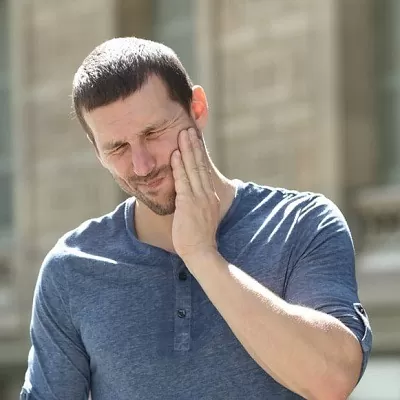
- Home
- About Us
- Resources
-
Hair transplant
- Robotic Hair Transplant
- Mustache Hair Transplant
- Alopecia Areata Treatment
- FUT Hair Transplant
- FUSS Hair Transplant
- Hair Restoration Clinic
- Beard Hair Transplant
- Hair Transplant Clinic in Tbilisi
- Hair Implants Clinic
- Female Hair Transplant
- Front Line Hair Fixing
- ACell PRP Therapy Hair Loss
- Body Hair Transplant
- Sideburn Hair Transplant
- Hybrid Hair Transplant
- Natural Hairline
- Baldness Treatment for Male
- Hair Fall Treatments
- FUE Hair Transplant
- Stem Cell Hair Transplant
- Hair Replacement
- Eyebrow Hair Transplant
- Eyelash Hair Transplant
- Crown Hair Transplant
- Hair Transplant Ras Al Khaimah
- Best Trichologists
- Hair Fillers
- PRP Treatment
- Hair Loss Treatment
- Scarless Hair Transplant
- Laser Hair Therapy Hair Loss
- Scalp Micropigmentation
- DHI Direct Hair Implant
- GFC Treatment For Hair
- Hair Specialists
- Hair Transplant
-
Surgical
-
Cosmetic Surgery
- Arm Lift Surgery
- Body Contouring
- Body Lift
- Buttock Augmentation
- Brazilian Butt Lift
- Burn Reconstructive
- Buttock Lift
- Buccal Fat Removal
- Cheek Augmentation
- Ear Reshaping
- Fat Transfer
- Congenital Anomalies
- Brow Lift Surgery
- Forehead lift – Brow Lift Surgery
- Male Rhinoplasty
- Silicone Nose Surgery
- How to Lose Belly Fat
- Mini Abdominoplasty
- Vascular Surgery
- Eyelid Xanthelasma Removal
- Body Jet Liposuction
- Bodytite Liposuction
- Chin Reduction
- Vaser 4D Liposuction
- Post Weight Loss
- Hand Rejuvenation
- Nose Tip Plasty
- Septoplasty Turbinate
- Double Chin Liposuction
- Magic Facelift
- Lip Reduction Surgery
- Closed Rhinoplasty
- Rhinoplasty
- Vector Facelift
- Earlobe Correction Surgery
- Lipomatic Treatment
- Silhouette Lift
- Preauricular Tag Removal
- Plexr Plasma Eye Lift
- Double Chin Removal
- Cleft Lip & Palate Surgery
- Hand Rejuvenation with Fat Transfer
- Lip Enlargement
- Skin Lesion Removal
- Facial Scar Revision
- Waist Sculpting
- Make Over Cosmetic Surgery
- Endolift
- Stemcell Facelift
- Neck Lift
- Lipoma Treatment
- Jawline Treatment
- Circumferential Abdominoplasty
- Juvederm Treatment
- Cosmetologist
- Reimplantation Of The Ureter
- French Butt Reshaping
- Body Lift – Belt Lipectomy
- Six Pack Abs Surgery
- Liquid Facelift
- Eyelid Surgery
- High Definition Liposculpture
- Lip Augmentation
- Surgical Scar Revision
- Palate Repair Surgery
- Facelift Surgery
- Eye Bag Removal
- Fistula Surgery
- Thigh Lift
- Calf Reduction
- Alarplasty
- Tummy Tuck
- Gallbladder Stones Surgery
- Bullhorn Lip Lift
- Lipo Abdominoplasty
- Ear Piercing
- Buffalo Hump Removal
- Silhouette Soft Thread Lift
-
Breast Surgery
- Breast Augmentation Surgery
- BRAVA Breast Augmentation
- Breast Reconstruction
- Lipo Chest Surgery
- Gynecomastia
- Breast Reduction
- DIEP Flap Breast Reconstruction
- Pectoral Implants
- Bra Line Lift
- Breast Cysts Treatment
- Short Scar Breast Augmentation
- Scarless Breast Augmentation
- Breast Lift Surgery
- Breast Enlargement Injections
- Inverted Nipple Surgery
- AFT Breast Augmentation
- Areola Reduction
- Motiva Breast Implants
- Mammogram
- Breast Implants
- Breast Lump
- Breast Fillers Injections
- Silicone Breast Implant
- Mentor Breast Implants
- Types of Breast Implants
- Saline Breast Implants
-
Cosmetic Surgery
-
Aesthetic Dept
-
Dermatology
- Actinic Keratosis
- Stem Cell Therapy
- Seborrheic Keratosis
- Skin Diseases
- Keloid Treatment
- Exilis Treatment
- Regenera Activa
- Exosomes For Hair Loss
- Hair Loss & Nail Disorders
- Miradry Treatment
- Biopsy for Diagnosis Purposes
- Dermoscopy Mole Evaluation
- Cryosurgery – Cryotherapy
- Incision and Drainage of Abscesses
- Ultrasound Cavitation
- Milia Treatment
-
Injectables
- 8 Point Facelift
- Kybella Treatment
- Botox Injection Georgia
- Belkyra Treatment
- Juvederm Fillers
- Cheek Fillers Injections
- Fat Melting Injections Georgia
- Weight Loss Injections
- Sunekos Injections
- Butt Fillers
- Lip Fillers Injections
- Adipose Lipolysis Injection
- Macrolane Injections
- Dermal Fillers Injections
- Aqualyx Injection
- Jawline Fillers Injections
- Liquid Rhinoplasty
- G Shot Injections
- G Cell Treatment
- Facial Sculpting
- Nefertiti Lift
- Sculptra Fillers
- Under Eye Fillers
- Voluma Filler
- Guide To Proper Fillers Injection Georgia USA
- Volift Fillers
- Botox For Shoulders
- Restylane Fillers
- Hyaluronic Acid
- Botox Lip Flip
- Ozempic Injection Georgia
-
Dermatology
-
Medical Services
-
Homecare
- Care Givers
- Glucose Drip At Home Near Me
- Saline Drip At Home
- Hangover IV Drip At Home
- Sports Injuries
- Joint Pain And Arthritis
- Back And Neck Pain
- Post-Covid Rehabilitation
- Post-Stroke Rehabilitation
- Post-Injury Rehabilitation
- Orthopedic Rehabilitation
- Neuro Rehabilitation
- Post Hospitalization Rehabilitation
- Post-Operative Care at Home
- Parkinson’s Rehabilitation
- Mother and Baby Care at Home
- Pediatric Nursing Care at Home
- Home Nurse For Pregnancy
- Nurse for Newborns at Home
- Palliative Care at Home
- Blood Test For Liver Function at Home
-
Weight Loss
- Bariatric Surgery
- Nutritionist & Dietitian
- Gastric Balloon
- Gastric Balloon Placement
- Gastric Bypass
- Gastric Banding
- Gastric Plication
- Mini Gastric Bypass
- Revision Bariatric Surgery
- Metabolic Surgeon
- Orbera Balloon
- Sleeve Gastrectomy
- Weight Loss Diet Plan
- Gastric Sleeve Procedure
- General Surgery
- Laparoscopic Surgery
- Slimming Surgeries
- Clinical Dietitian
- Zepbound Mounjaro For Weight Loss
- Allurion Balloon
- Wegovy Injections
- Non-Surgical Weight Loss
- Endoscopic Balloon Extraction
- Bariatric Weight Loss Surgery
-
Regenerative
- Immune System Boost
- IV Low Laser Treatment
- IV Therapy Liver Detox
- IV Therapy Libido
- IV Therapy Gut Health
- Growth Factor For Vagina
- IV Therapy Immune Support
- IV Therapy for Anemia
- NAD+ IV Therapy | NAD IV Drip
- NAD IV Drip
- IV Ozone Therapy Anti Aging
- IV Ozone Therapy Pain Relief
- IV Ozone Therapy
- Food Intolerance Test
- IV Ozone Therapy Gut Health
- Food Intolerance Test
- IV Ozone Therapy Improve Metabolism and Antioxidant
- IV Therapy Ozone Sexual Health Male & Female
- IV Ozone Therapy Liver Detox
- IV Ozone Therapy for Sports Injury
- Ozone Therapy for Mental Health and Anxiety
- Ozone Therapy for Sleep Disorders
- Low Energy Treatment
- Illness Prevention Program
- Subcutaneous Ozone Therapy
- Post-Op IV Ozone Therapy
- P Shot with Ozone Therapy
- Specific Stem Cell Therapy
- Diagnosis
- Sexology
-
Intimate Surgery
- Sexologists
- Penile Enlargement
- Erectile Dysfunction
- Clitoral Hoodectomy
- Hymen Repair Surgery
- Labia Majora Augmentation
- Andrology: Lack Of Libido
- Perineoplasty Surgery
- Psychosexual Therapy
- Pubic Lift Surgery
- Sexual Advice And Consultation
- Feeling Enhancement
- Stone Disease
- Scrotox (Botox In The Scrotum)
- Post-Partum Vaginal Rejuvenation
- Prostate Enlargement
- Penile Filler
- Premature Ejaculation
- Mons Ptosis and Labial Sagging
- Vaginal Dryness Solution
- Recurring Vaginal Infections Treatment
- Physiotherapist
- Gut health treatment
-
Homecare
-
Dental
-
Orthodontists Georgia
- Root Canal Treatment
- Teeth Whitening in Georgia
- Protruding Teeth
- Crooked Teeth Treatment
- Headgear
- Crowded Teeth Treatment
- Nerve Filling With Inflammation
- Dentofacial Orthopedics
- Dental Retainers
- Dental Braces
- Fixed Appliances
- Clear Aligners in Georgia USA
- Dental Panoramic X-Ray
- Teeth Dentures
- Digital Smile Design
- Dental Veneers
- E-Max Veneers
- Porcelain Dental Veneers
- Dental Tooth Filling
- Invisalign Braces Treatment
- Zirconia Crown
- Ceramic Crown
- Gum Contouring
- Gum Bleeding Treatment
- Gummy Smile Treatment
- Gum Depigmentation
- Teeth Polishing & Scaling
- Hollywood Smile Design
- Non-Prep Veneers
- Dental Stains Removal
- Dental Crown and Bridges
- Pink Gums With Laser
- Hollywood Smile Georgia
- Pediatric Dentistry
- Composite Veneers
- Hollywood Smile Makeover
- Dental Bonding Cementing
- Tooth Removal
- Surgical Tooth Removal
- Advanced Method of Dental Implants Georgia
- Teeth Cleaning
- Zygomatic Implants
- Mouthguards
- Zirconia Implant
- Gold Teeth
- Hydrogen Peroxide Whitening
- TMJ Disorders Treatment
- Wisdom Tooth Extraction
- Gum Recession Treatment
- Gingivitis Treatment
- Titanium Implants
- SMART Dental Amalgam Removal
- Dental Extraction
- Dental Implant Infection
- Same Day Dental Implants
- Concentrated Growth Factor CGF
- Periodontics Gum Disease
- Routine Dental Check-Up
- Teeth Whitening Strips
- Dental Tooth Calculus
- Facial Pain
- Home Teeth Whitening
- Dental Space Maintenance
- Overlapping Teeth
- Full Mouth Rehabilitation
- Teeth Grinding Treatment
- Sports Mouth Guard
- Night Guard Splint
- Teeth Straightening Alignment
- Damon Braces System
- Ceramic Braces
- Metal Braces
- Lingual Braces
- Clear Aligners
- Dental Activators
- Esthetic Bridge
- Home Visit Doctor
- Stress Incontinence
- Traumatic Brain Injuries
- Improve Mobility And Balance
- Diagnostic Blood Test At Home
- Geriatric Rehabilitation
- DNA Nutrition Test
- Spinal Cord Injuries
- Pediatric And Adolescent Rehabilitation
- Pre- And Post-Surgery Rehabilitation
- Home Nursing Services Georgia
- Cerebral Palsy Rehabilitation
- Health Checkup At Home
- Dementia Care at Home
- Blood Test At Home
- Full Body Checkup at Home
- Suture Removal at Home
- Hernia Surgery
- Wound Dressing
- Tube Feeding at Home
- Catheter Care at Home
- Diabetic Foot Care
- Elderly Medical and Home Care
- Home Facial
- Skincare and Facials
- Simple Nephrectomy
- Baby Sitting at Home
- Hot Stone Massage
- Antibiotics at Home
- Physiotherapy at Home
- Blood Tests For Kidney Function
- Vesicoureteric Reflux Treatment
- Lab Service For Blood Test At Home
- Endoscopic Urethrotomy
- Blood Collecting Services At Home
- Surgical Kidney Stone Removal
- Radical Nephrectomy
- Ureteral Stent Insertion
- Ureteroscopic Lithotripsy
- Extracorporeal Shock Wave Lithotripsy
- Blood Test For Body Analysis at Home
- Vitamin D Tests at Home
- Chronic Disease Management at Home
-
Orthodontists Georgia




